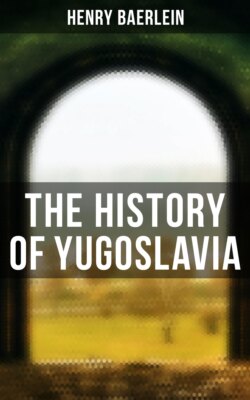Читать книгу The History of Yugoslavia - Henry Baerlein - Страница 82
На сайте Литреса книга снята с продажи.
DAWN OF ITALIAN UNITY
ОглавлениеWhile they were speaking Italy had acted. It is more true to say that some Italians had acted. The defence of Venice and the five days at Milan are glorious episodes, but those volunteers who flocked to Garibaldi, notably from Piedmont, and of whose exploits we can never hear enough—in what proportion were they to the inhabitants of the Peninsula? The people as a whole exhibited indifference, which causes Garibaldi to complain most bitterly. And if it had not been for the genius of Cavour and his collaborators, for the diplomatic support of England, the alliance with Prussia and, above all, for the French army, the redemption of the country would have been delayed. No doubt the Church had an enormous influence upon the people, no doubt in the surviving mediæval States—the duchies and republics—whose government belonged to the privileged classes, there was little to awaken popular interest; no doubt great masses of the people were untouched by education and the spread of new ideas—if freedom is a new idea; no doubt the peasants in various parts of the country were in as deplorable a plight as the peasants of to-day, which has had as one effect the inexpansive manner, as Italian officers have testified, with which the redeemed peasants of the Trentino and elsewhere often welcomed their redeemers. And the Italian peasants of 1859 may be pardoned for imagining that this world never would be made so good as to include their own salvation. One can find sufficient excuses for what occurred in Italy. Will not the Italians excuse, rather than praise, the very, very small number of Yugoslavs who have stood out against Yugoslavia? When Italy had been united did no Italians choose rather to go into exile?
